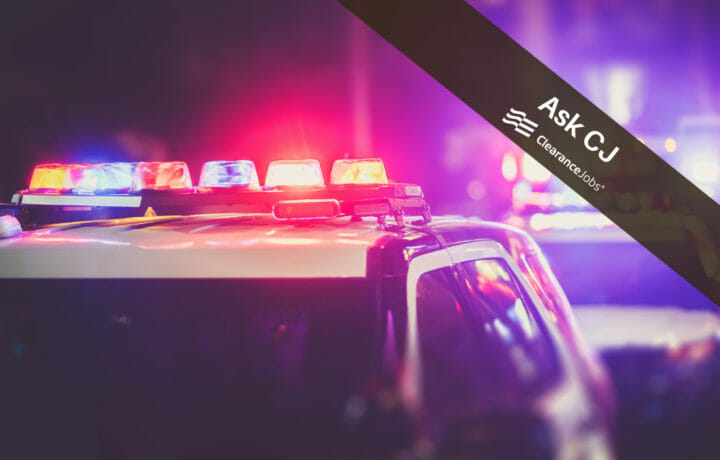Security clearance policy is continually evolving, and the average security clearance holder quickly forgets what is a reportable incident and what isn’t. Clearance holders and applicants typically fall to one end of the spectrum or the other – over reporting incidents, or under reporting them– as we saw with this ClearanceJobsBlog subscriber.
I’m a cleared individual (Secret clearance) working as a federal employee (and in the union), and in March of 2020, I was riding with my friend in his rental car and he was pulled over by the police and he was ultimately charged with a DUI. Bad decision on my part to ride with him but also a really bad decision on his part to drive, obviously. I was detained at the scene for a period of time but was eventually given a ride home by the police, since my friend was driving a rental car and I had been drinking also. I was never charged with anything, but my question is, is this a reportable incident on the SF-86 or required to be reported by me in some other way? My clearance was re-activated in 2015 when I was hired by the government (hired in February 2015 and investigation concluded in May 2015) so my next investigation should be in 2025. Any advice as to what I should do, if anything, would be much appreciated and thank you in advance.
Simple enough – if there was no charge, there is no citation. And if you were not arrested, there is no reason to report. Now, if this friend continues to involve themselves in criminal activity, you may want to evaluate if the company you keep will have an effect on your security clearance or killing your chances at a security cleared career.
Let it go for now, but be careful who you consider your ride or die. And definitely Uber up next time.
While honesty is the best policy, guilt grabbing can get the best of security clearance holders when they are up for a PR, filling out formal documents, etc. Questions on the SF-86 don’t ask if you ever done anything illegal, but explicitly question your “convictions,” “charges,” or “arrests.”
Were you arrested for driving under the influence? Charged and convicted with resisting arrest? If the answer is no, then the SF-86 doesn’t need to know about it.
FROM PR TO CE
Of security clearance holders enrolled in continuous evaluation (CE), 69% are Secret clearance holders, and 31% are Top Secret or TS/SCI levels.
For Secret security clearances, if you were up for a PR in the last year, you were probably deferred into CE. DoD security clearance holders can see if they are under continuous evaluation under the newly released DISS. That information is available to security officers, not applicants, and your security officer may or may not let you know if you were deferred. If you think your PR is due, and you’re wondering, just ask.
The best person to ask is your Cognizant Security Officer (CSO) if you work for the federal government and your Facility Security Officer if you are a contractor.



